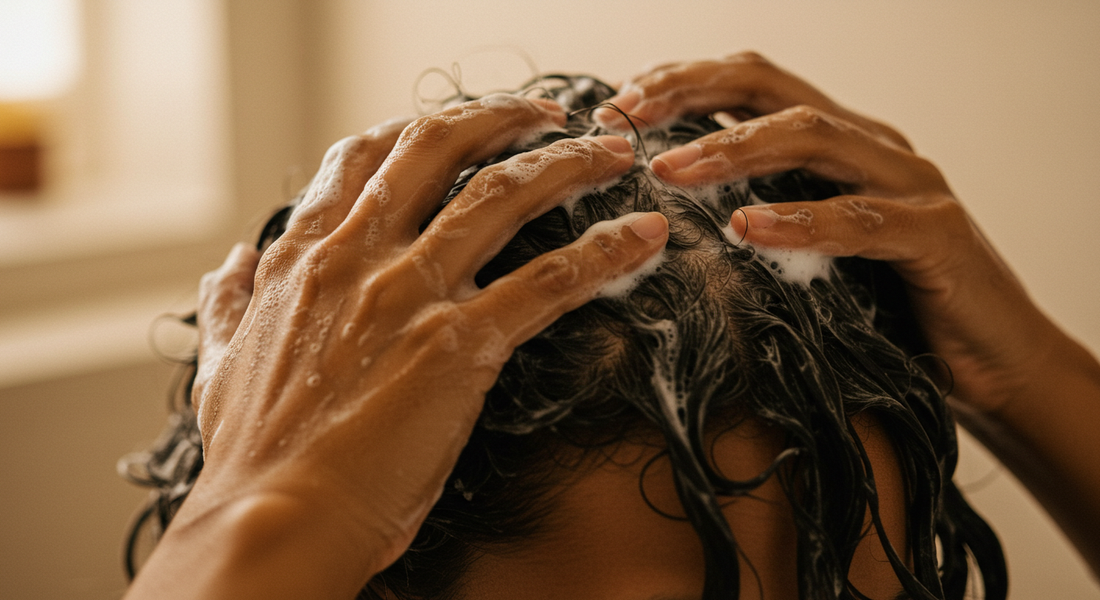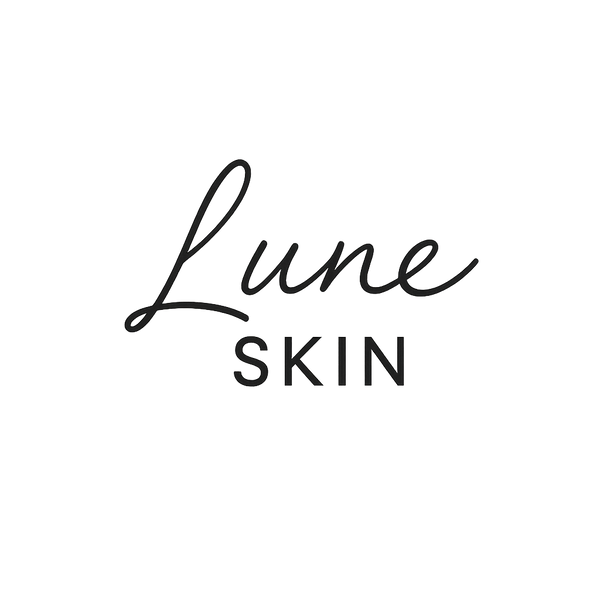
The Complete Guide to Shampoo: Choosing the Right Formula for Healthy, Beautiful Hair
Share
Introduction
Hair care begins with the basics, and at the heart of every routine lies shampoo. Often overlooked as a simple cleansing product, shampoo actually plays a crucial role in maintaining scalp health, strengthening strands, and enhancing overall hair appearance. With countless options on the market, selecting the right shampoo can feel overwhelming. At Lune Skin, we believe that the right shampoo can transform not just your hair but also your confidence.
What is Shampoo and Why is it Important?
Shampoo is a hair care product designed to cleanse the scalp and hair by removing dirt, oil, sweat, and product buildup. Unlike ordinary cleansers, shampoo formulations are tailored to balance the scalp’s natural oils while addressing specific hair needs, such as dryness, frizz, or damage. Using the right shampoo ensures a healthy foundation for the rest of your hair care routine.
Different Types of Shampoo and Their Benefits
-
Moisturizing Shampoo – Perfect for dry or frizzy hair, these formulas are enriched with hydrating ingredients like glycerin, aloe vera, or natural oils. They restore moisture balance and add softness.
-
Volumizing Shampoo – Ideal for fine or flat hair, volumizing shampoos add body and lift without weighing strands down. Ingredients like proteins and lightweight polymers enhance fullness.
-
Sulfate-Free Shampoo – Free from harsh cleansing agents like sodium lauryl sulfate, these shampoos are gentler and preserve natural oils. They are especially beneficial for sensitive scalps and color-treated hair.
-
Clarifying Shampoo – Designed to deeply cleanse, clarifying shampoos remove excess oil, product buildup, and impurities. Best used once a week to reset hair and scalp.
-
Color-Protecting Shampoo – Formulated with UV filters and nourishing compounds, these shampoos help maintain vibrancy and prevent fading in dyed or highlighted hair.
-
Medicated Shampoo – Specially created to address conditions such as dandruff, psoriasis, or seborrheic dermatitis, often containing active ingredients like zinc pyrithione or salicylic acid.
How to Choose the Right Shampoo for Your Hair Type
- Oily Hair: Look for lightweight, balancing shampoos with ingredients like tea tree oil or citrus extracts to control sebum. Avoid overly moisturizing formulas that may worsen oiliness.
- Dry Hair: Opt for moisturizing shampoos with natural oils, shea butter, or keratin to lock in hydration.
- Color-Treated Hair: Choose sulfate-free, color-protecting shampoos to extend vibrancy and reduce damage.
- Fine Hair: Go for volumizing shampoos that add body without heaviness. Avoid creamy or oil-heavy formulas.
- Curly or Textured Hair: Select hydrating and curl-enhancing shampoos that define texture while minimizing frizz.
- Sensitive Scalp: Gentle, sulfate-free shampoos with soothing ingredients like chamomile or oatmeal are best.
How Often Should You Shampoo Your Hair?
There is no one-size-fits-all answer to this question, as it depends on scalp type, lifestyle, and personal preference.
- Oily scalps may require daily or every-other-day washing.
- Dry or curly hair may benefit from shampooing only two to three times per week to preserve natural oils.
- Active lifestyles involving workouts or outdoor activities may require more frequent cleansing to remove sweat and dirt.
Finding the right balance is essential. Over-washing can strip oils and cause dryness, while under-washing can lead to buildup and scalp irritation.
Shampoo vs Conditioner: Understanding the Difference
While shampoo is formulated to cleanse the scalp and hair, conditioner serves as a nourishing and protective treatment. Shampoo removes impurities, while conditioner restores moisture, smooths cuticles, and prevents tangling. Both work hand-in-hand for a complete hair care routine.
Ingredients to Look For in a Quality Shampoo
High-quality shampoos often contain beneficial natural ingredients, such as:
- Argan Oil: Provides deep hydration and shine.
- Keratin: Strengthens and repairs damaged hair.
- Tea Tree Oil: Balances oily scalp and reduces dandruff.
- Aloe Vera: Soothes irritation and adds moisture.
- Coconut Water: Hydrates without heaviness, perfect for fine hair.
Avoid shampoos with excessive sulfates, parabens, or artificial fragrances if you have sensitive skin or damaged hair.
Tips for Using Shampoo Effectively
-
Wet hair thoroughly with lukewarm water before applying shampoo.
-
Use a coin-sized amount—more is rarely necessary.
-
Massage into the scalp with fingertips (not nails) to stimulate blood circulation.
-
Focus on the scalp rather than the ends, as shampoo naturally rinses down.
-
Rinse thoroughly and follow up with conditioner for hydration and protection.
Common Mistakes to Avoid with Shampoo
- Using too much product, leading to residue buildup.
- Washing with hot water, which strips natural oils and causes dryness.
- Applying shampoo directly to dry hair.
- Neglecting to rinse properly, leaving behind irritating residue.
Conclusion
Shampoo is far more than a cleansing product—it is the foundation of healthy hair care. By choosing the right formula for your scalp and hair type, you can address concerns like dryness, oiliness, or color protection while enhancing overall strength and shine. At Lune Skin, we believe that great hair begins with the right shampoo, and finding your perfect match can make all the difference in your daily routine.

